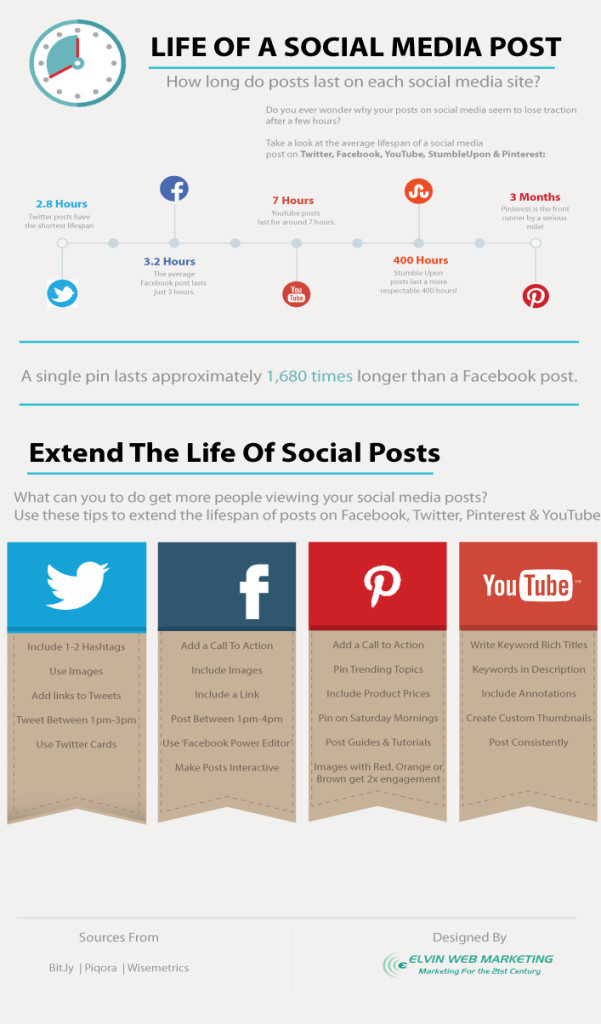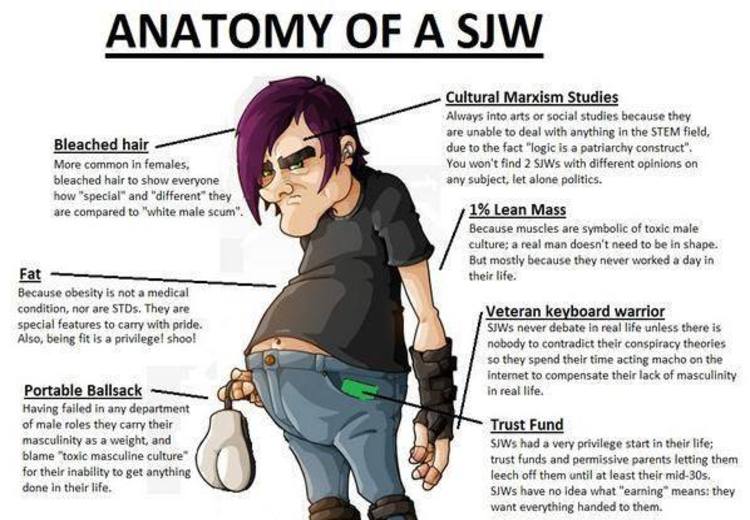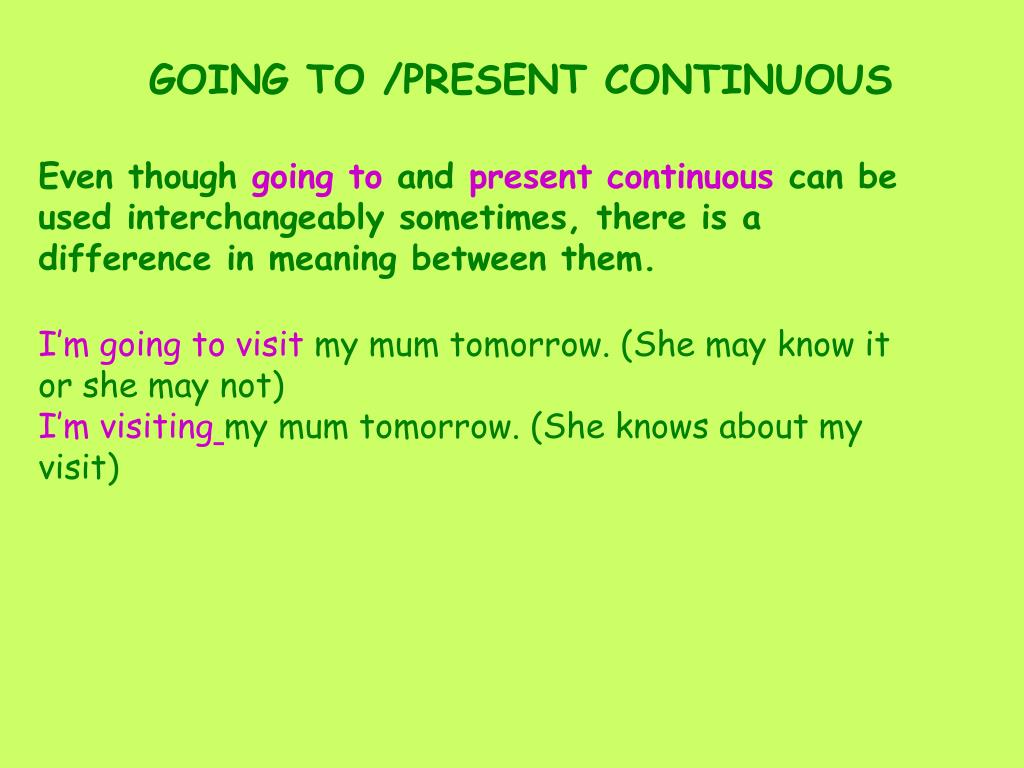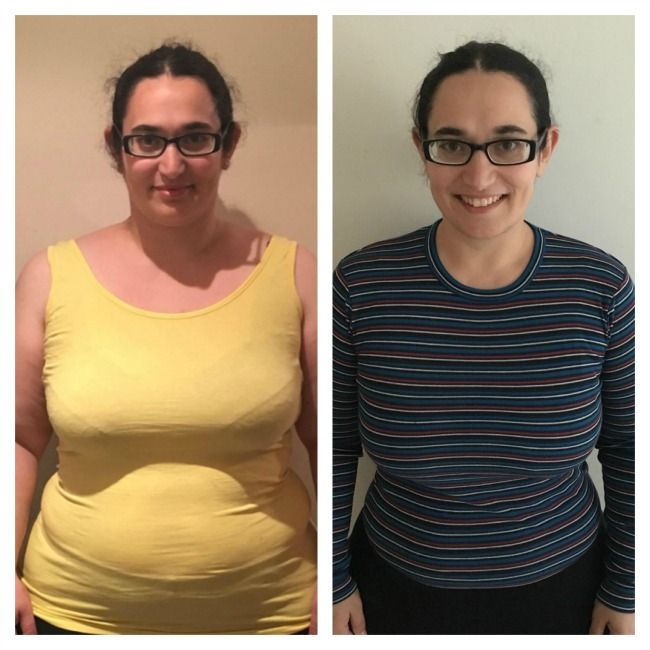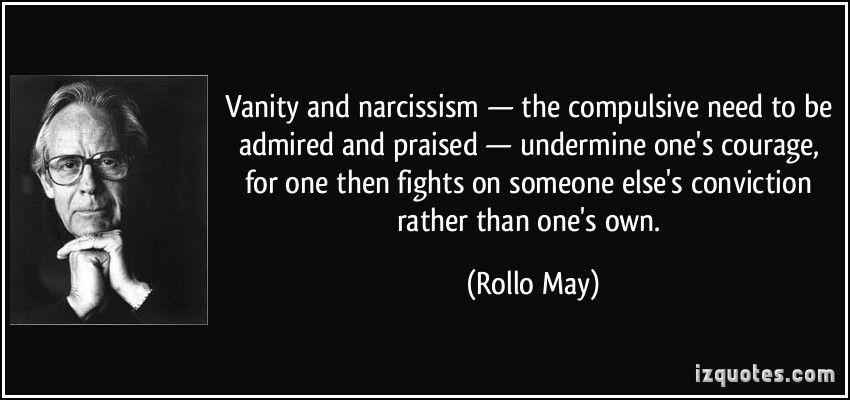Growing up too quickly
The Effects of Trauma from Growing up Too Fast
One of the most common euphemisms and justifications for a certain type of childhood trauma is growing up too fast. It is a euphemism because it is used to minimize the pain that the person felt as a child when their needs werent being met by describing it in seemingly neutral or even positive language. Its a justification because it is often used to argue that growing up faster and becoming mature beyond your years is indeed a good thing.
We will explore and address all of this here.
The Origins and the MechanismWhat is frequently called growing up too fast or being mature beyond your years is simply neglect and abuse. Many children grow up in an environment where they are neglected and abused in such ways that they become little adults who, not only can take care of themselves better or are wiser than others, but also take care of their parents, siblings, or other family members.
Its origins can be summarized in two main points.
Firstly, it happens because parents attribute unfair responsibility and unrealistic standards onto their children. Consequently, the child is expected, for example, to perform a task without anybody actually teaching them how to do it, and is punished if they fail. Or they are expected to be perfect, and if, naturally, they are imperfect, they then receive harsh negative consequences for it. This is not a one-time thing, but a persistent atmosphere the child has no choice but to live in.
And secondly, the child grows up too fast because of role-reversal. Role-reversal means that the caregiver assigns their role onto the child and therefore the child is seen as somebody who has to take care of the caregiver and possibly others. The adult, in contrast, takes on the role of the child. The child internalizes this role and it becomes their self-understanding. And so they start to act as a mature, responsible adult while the actual adult is taken care of as though they were the child.
As a result of this appalling psychological dynamic, the person eventually develops a myriad of psychological, emotional, intellectual, and social problems that can haunt them for the rest of their life.
Here are some of the more common beliefs and emotional issues related to it.
One, believing that you always have to be strong. This results in being disconnected from your needs, sometimes to the degree where you ignore being tired, hungry, full, depressed, and so on. Or, you become counter-depended, where you emotionally act in an overly protective manner and people cant get close to you, which leads to unsatisfying relationships.
Two, believing that you cant ask for help and have to do everything yourself. This often leads to you feeling lonely, isolated, unnecessarily distrustful, or that youre alone against the world. Its very hard for you to express your needs to others, or sometimes even recognize that you have needs.
Three, believing that if you recognize the trauma, abuse, or other injustices you suffered, that you will be weak, flawed, a victimand thats totally unacceptable. This blocks empathy for yourself, and especially empathy for the child that you once were because you are unable to connect with the feelings you felt when you were a child, and by extension makes it impossible to fully heal the original trauma that led you to have these problems in the first place.
Four, feeling empathy for the people who hurt you before feeling empathy for yourself. This also makes it impossible to resolve childhood trauma for the same reason. It is vital to emotionally connect and empathize with your childhood experiences without justifying the people who failed to meet your needs. It also leads to relationships and social environments where you may be mistreated in the same ways you were mistreated as a child.
The most common general effects of it all are poor self-care or even self-harm, workaholism, trying to take care of everybody else, people-pleasing, self-esteem issues, constantly trying to doing more than you are physically capable of, having standards for yourself that are too high or completely unrealistic, feeling toxic guilt and false responsibility, chronic stress and anxiety, lack of closeness in relationships, codependency, staying inor even unconsciously seeking abusive or otherwise toxic social environments.
Heres a quick example of a hypothetical person who had to grow up too fast.
Olivia says she was a strong-willed, curious, and intelligent child. She describes her mother as a weak, incompetent person who always had numerous problems and tried to gather pity from those around her. She blamed her husband, Olivias father, for drinking and pitied herself for being in such an unfortunate situation where she had to take care of two children and constantly worry about everything.
Whenever Olivia expressed her dissatisfaction about how she was being treated, her parents used to shame and guilt-trip her by saying that shes making her mother upset by saying such hurtful things. Olivia felt sad, anxious, and even guilty when her parents were fighting, usually because her father was drinking again. When she grew a little older, she was often expected to take care of her drunk father: help him get home from a local bar, hide all the drinks at home, help him get undressed and ready for bed.
Olivia grew up thinking that she hadand still hasto take care of both her mother because shes so weak and dependent, and of her father since hes a drunk and a danger to himself and others. Olivia tries to stay strong no matter what because she doesnt want to be weak like her pitiful, child-like mother.
Now, as an adult, Olivia struggles with intimacy in her romantic relationship as she has found a partner who is emotionally immature and self-unaware, just like her father. She works way too many hours, oftentimes missing on sleep or overworking herself into terrible physiological symptoms because of lack of proper rest, an excess of coffee and energy drinks, poor diet, and chronic stress. Its an extension of her history of anorexia and self-mutilation that started in early adolescence as a response to her overwhelming home environment.
Olivia associates things like living a slower, more relaxed, more self-connected life, or even participating in basic self-care, with being weak. She doesnt even consider it as viable options because she doesnt want to feel weak. And so she continues living a life she feels she has no choice but to live in the way its always been.
She doesnt even consider it as viable options because she doesnt want to feel weak. And so she continues living a life she feels she has no choice but to live in the way its always been.
Growing up too fast or being mature beyond your years is often seen as a neutral or even a positive thing. In actuality, it is a psychological prison that the child is put into by their caregivers, where they are expected to be perfect, meet unrealistic standards, or fit a role that doesnt belong to them.
As a result, they develop many devastating problems that they often struggle with for the rest of their lives. Different people experience these things differently, and not everyones story is the same as Olivias, but the underlying tendencies are always the same, and the origins are always the same.
Some argue that all of it makes the person stronger, more mature, but we cant ignore the fact that while some of the qualities the person develops can have positive effects, it fundamentally robs the child of their childhood and innocence.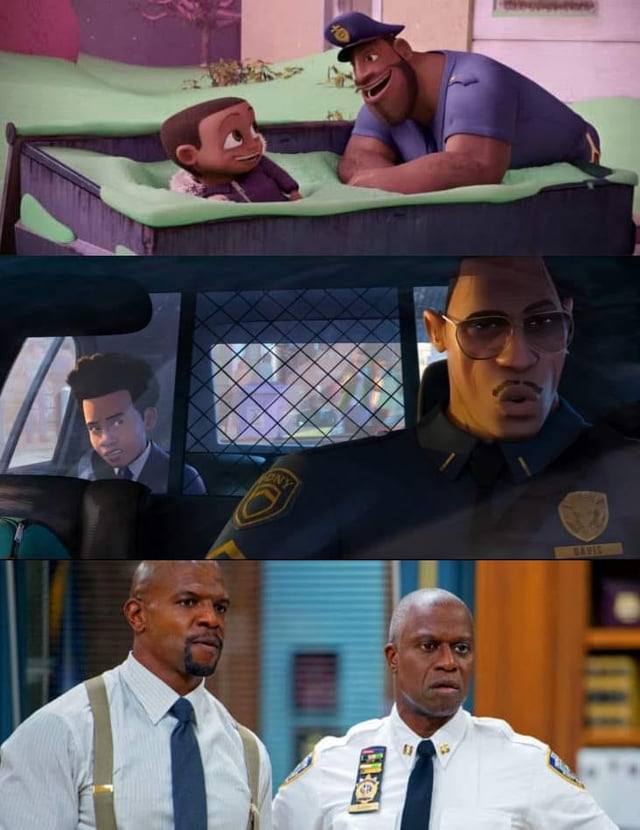 Moreover, you can get the sameand oftentimes much betterpositive results by meeting the childs needs and helping them develop a healthy sense of self-esteem without traumatizing them.
Moreover, you can get the sameand oftentimes much betterpositive results by meeting the childs needs and helping them develop a healthy sense of self-esteem without traumatizing them.
As an adult, the person can finally start identifying the origins of these issues and working on them to finally become free of them.
The Effects of Trauma from Growing up Too Fast
One of the most common euphemisms and justifications for a certain type of childhood trauma is growing up too fast. It is a euphemism because it is used to minimize the pain that the person felt as a child when their needs werent being met by describing it in seemingly neutral or even positive language. Its a justification because it is often used to argue that growing up faster and becoming mature beyond your years is indeed a good thing.
We will explore and address all of this here.
The Origins and the MechanismWhat is frequently called growing up too fast or being mature beyond your years is simply neglect and abuse. Many children grow up in an environment where they are neglected and abused in such ways that they become little adults who, not only can take care of themselves better or are wiser than others, but also take care of their parents, siblings, or other family members.
Many children grow up in an environment where they are neglected and abused in such ways that they become little adults who, not only can take care of themselves better or are wiser than others, but also take care of their parents, siblings, or other family members.
Its origins can be summarized in two main points.
Firstly, it happens because parents attribute unfair responsibility and unrealistic standards onto their children. Consequently, the child is expected, for example, to perform a task without anybody actually teaching them how to do it, and is punished if they fail. Or they are expected to be perfect, and if, naturally, they are imperfect, they then receive harsh negative consequences for it. This is not a one-time thing, but a persistent atmosphere the child has no choice but to live in.
And secondly, the child grows up too fast because of role-reversal. Role-reversal means that the caregiver assigns their role onto the child and therefore the child is seen as somebody who has to take care of the caregiver and possibly others.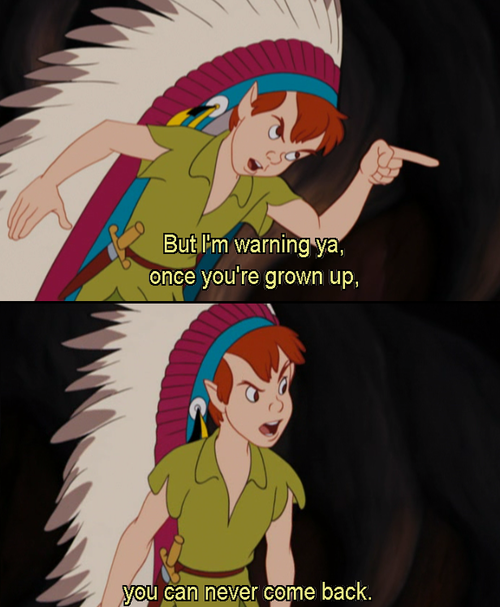 The adult, in contrast, takes on the role of the child. The child internalizes this role and it becomes their self-understanding. And so they start to act as a mature, responsible adult while the actual adult is taken care of as though they were the child.
The adult, in contrast, takes on the role of the child. The child internalizes this role and it becomes their self-understanding. And so they start to act as a mature, responsible adult while the actual adult is taken care of as though they were the child.
As a result of this appalling psychological dynamic, the person eventually develops a myriad of psychological, emotional, intellectual, and social problems that can haunt them for the rest of their life.
Here are some of the more common beliefs and emotional issues related to it.
One, believing that you always have to be strong. This results in being disconnected from your needs, sometimes to the degree where you ignore being tired, hungry, full, depressed, and so on. Or, you become counter-depended, where you emotionally act in an overly protective manner and people cant get close to you, which leads to unsatisfying relationships.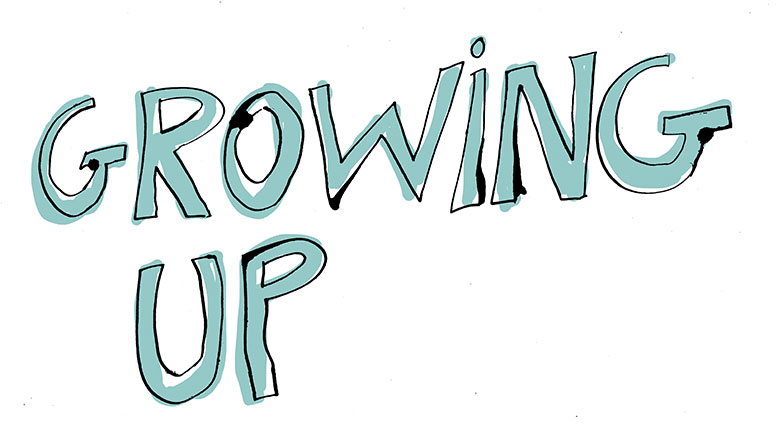
Two, believing that you cant ask for help and have to do everything yourself. This often leads to you feeling lonely, isolated, unnecessarily distrustful, or that youre alone against the world. Its very hard for you to express your needs to others, or sometimes even recognize that you have needs.
Three, believing that if you recognize the trauma, abuse, or other injustices you suffered, that you will be weak, flawed, a victimand thats totally unacceptable. This blocks empathy for yourself, and especially empathy for the child that you once were because you are unable to connect with the feelings you felt when you were a child, and by extension makes it impossible to fully heal the original trauma that led you to have these problems in the first place.
Four, feeling empathy for the people who hurt you before feeling empathy for yourself. This also makes it impossible to resolve childhood trauma for the same reason. It is vital to emotionally connect and empathize with your childhood experiences without justifying the people who failed to meet your needs.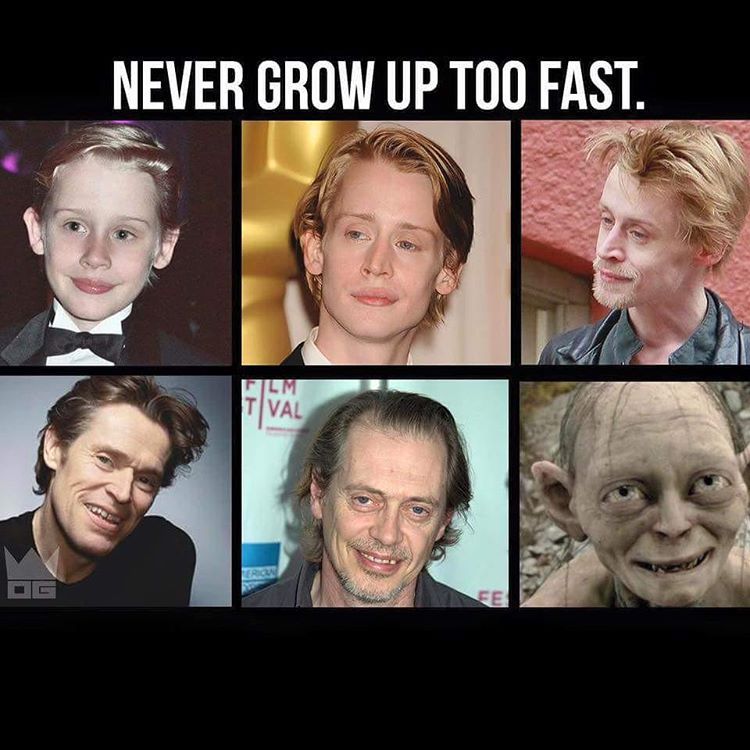 It also leads to relationships and social environments where you may be mistreated in the same ways you were mistreated as a child.
It also leads to relationships and social environments where you may be mistreated in the same ways you were mistreated as a child.
The most common general effects of it all are poor self-care or even self-harm, workaholism, trying to take care of everybody else, people-pleasing, self-esteem issues, constantly trying to doing more than you are physically capable of, having standards for yourself that are too high or completely unrealistic, feeling toxic guilt and false responsibility, chronic stress and anxiety, lack of closeness in relationships, codependency, staying inor even unconsciously seeking abusive or otherwise toxic social environments.
An ExampleHeres a quick example of a hypothetical person who had to grow up too fast.
Olivia says she was a strong-willed, curious, and intelligent child. She describes her mother as a weak, incompetent person who always had numerous problems and tried to gather pity from those around her. She blamed her husband, Olivias father, for drinking and pitied herself for being in such an unfortunate situation where she had to take care of two children and constantly worry about everything.
Whenever Olivia expressed her dissatisfaction about how she was being treated, her parents used to shame and guilt-trip her by saying that shes making her mother upset by saying such hurtful things. Olivia felt sad, anxious, and even guilty when her parents were fighting, usually because her father was drinking again. When she grew a little older, she was often expected to take care of her drunk father: help him get home from a local bar, hide all the drinks at home, help him get undressed and ready for bed.
Olivia grew up thinking that she hadand still hasto take care of both her mother because shes so weak and dependent, and of her father since hes a drunk and a danger to himself and others. Olivia tries to stay strong no matter what because she doesnt want to be weak like her pitiful, child-like mother.
Now, as an adult, Olivia struggles with intimacy in her romantic relationship as she has found a partner who is emotionally immature and self-unaware, just like her father. She works way too many hours, oftentimes missing on sleep or overworking herself into terrible physiological symptoms because of lack of proper rest, an excess of coffee and energy drinks, poor diet, and chronic stress. Its an extension of her history of anorexia and self-mutilation that started in early adolescence as a response to her overwhelming home environment.
She works way too many hours, oftentimes missing on sleep or overworking herself into terrible physiological symptoms because of lack of proper rest, an excess of coffee and energy drinks, poor diet, and chronic stress. Its an extension of her history of anorexia and self-mutilation that started in early adolescence as a response to her overwhelming home environment.
Olivia associates things like living a slower, more relaxed, more self-connected life, or even participating in basic self-care, with being weak. She doesnt even consider it as viable options because she doesnt want to feel weak. And so she continues living a life she feels she has no choice but to live in the way its always been.
Bottom Line and Final ThoughtsGrowing up too fast or being mature beyond your years is often seen as a neutral or even a positive thing. In actuality, it is a psychological prison that the child is put into by their caregivers, where they are expected to be perfect, meet unrealistic standards, or fit a role that doesnt belong to them.
As a result, they develop many devastating problems that they often struggle with for the rest of their lives. Different people experience these things differently, and not everyones story is the same as Olivias, but the underlying tendencies are always the same, and the origins are always the same.
Some argue that all of it makes the person stronger, more mature, but we cant ignore the fact that while some of the qualities the person develops can have positive effects, it fundamentally robs the child of their childhood and innocence. Moreover, you can get the sameand oftentimes much betterpositive results by meeting the childs needs and helping them develop a healthy sense of self-esteem without traumatizing them.
As an adult, the person can finally start identifying the origins of these issues and working on them to finally become free of them.
Growing up - Psychologos
October 01, 2022, 21:54
Kozlov, Doctor of Psychology, Professor
Rector of the University of Practical Psychology
Growing up is the process of transition from a child's worldview to an adult's worldview, from "I can't!" to "Everything will be done", from the hope that everything will be done for you - to personal responsibility. The readiness and ability to be responsible for your actions and fulfill the duties assigned to you is one of the most important criteria for growing up.
The readiness and ability to be responsible for your actions and fulfill the duties assigned to you is one of the most important criteria for growing up.
Legally, under 18 you are a child. After 18 years - an adult.
In life, psychologically, an Adult, as opposed to a Child, is called a responsible and independent person. If you are independent and responsible, be you 10 years old - you are an adult. If you are 30 years old, but you are not independent and responsible, you are a child.
Growing up is described in more detail by the concepts of youth, young man and adult.
Growing up is a change in the system of values, the achievement of which is directly related to the assumption of responsibility, and not only for oneself, but also for other people. Growing up is determined by the skills of a person and the amount of responsibility that is assigned to him (or that he took on himself). Levels: raise yourself, feed, put in order; set yourself up for work, cheer yourself up; provide for parents; give birth and raise children; give birth and bring to mind the Project; make a direction or firm.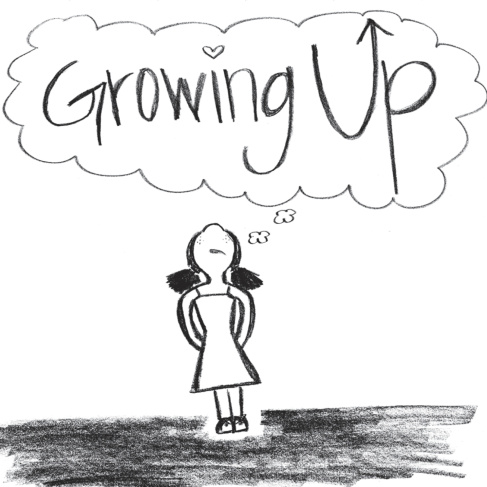
There are pluses and minuses in growing up. The disadvantages of growing up are perfectly described by T.V. Gagin:
“Growing up deprives a person of love. How? Not easy. But it's safe. A person grows up (not all at once, gradually) insofar as he understands one simple thing more and more deeply - both in the sense of faith and in the sense of everyday practice. He himself - by himself, as he is - DOES NOT NEED ANYONE. Nobody. Quite...» See →
Does everyone want to grow up? - Not. There are many people who are many years old, but at the same time it is very difficult for them to part with their childhood. Not many people want to grow up, because responsibility is scary and burdensome. Children have no problems, they live easier. Therefore, many people are overage children. But there are also children who behave like adults.
How to grow up?
Growing up is facilitated by a person's striving for the future: whoever thinks about the future in a timely manner, makes efforts, takes steps towards becoming an adult.
Conversely, the rejection of the efforts that need to be made to build one's future looks like a conscious or unconscious desire to delay or delay growing up.
Adulthood presupposes Life planning - subordination to a clear plan, concern for the future, thinking through the consequences of one's decisions, etc. Therefore, becoming an adult means clearly controlling your life, managing everything that makes up life, living not only today, but also thinking about the future. Overcoming difficulties is growing up.
- Responsibility
- Adulthood
- Author N.I. Kozlov
Comments (19):
Guest, 06 October 2013, 15:36
The problem of growing up has not passed me by either! The worst thing of all is that I began to grow up after 35 years, and until that time I was just a spoiled child. All my life my mother protected me, thereby rendering me a disservice. But my mother began to grow old and weaken, and she could no longer give me that powerful emotional charge that she had given before. This did not horrify me, of course, but I experienced disgusting emotions. I began to understand that time is running out, and I myself can’t take responsibility for myself, my son, parents ...... At first I cried, tried to somehow “stir up” my mother, but holding her in my arms weak hand, I realized that my time is coming when I myself must take control of myself and everyone who is behind me, otherwise in 10-15 years I will turn into a helpless old woman, causing only disgust among those around me and loved ones! How I didn't want that. And then work on myself began, first of all, I realized that I should not be afraid of loneliness even if it happens), I must be prepared for the fact that my mother can "leave" and this is normal, and that I must "survive" and save yourself for the future. At first, my brains did not want to understand this, let alone accept it, there were tantrums and breakdowns, but more and more often I coped with them myself, thinking that I should not burden my mother and son with my problems.
This did not horrify me, of course, but I experienced disgusting emotions. I began to understand that time is running out, and I myself can’t take responsibility for myself, my son, parents ...... At first I cried, tried to somehow “stir up” my mother, but holding her in my arms weak hand, I realized that my time is coming when I myself must take control of myself and everyone who is behind me, otherwise in 10-15 years I will turn into a helpless old woman, causing only disgust among those around me and loved ones! How I didn't want that. And then work on myself began, first of all, I realized that I should not be afraid of loneliness even if it happens), I must be prepared for the fact that my mother can "leave" and this is normal, and that I must "survive" and save yourself for the future. At first, my brains did not want to understand this, let alone accept it, there were tantrums and breakdowns, but more and more often I coped with them myself, thinking that I should not burden my mother and son with my problems.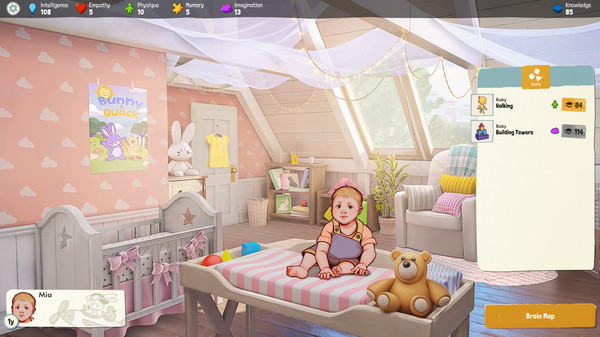 And from that moment my growth began. I completely agree with psychologists that growing up begins with self-awareness as an individual, taking responsibility for those people who are weaker, taking responsibility for all actions and their consequences! Yes, it’s not very pleasant, I don’t live expecting a miracle now, I just live, adapting my life to certain situations, but now I know for sure that I can take on the “blows of fate”, that I can accept the care of my parents, I can advise something good for my son! I am 42 years old and still growing up, the process is not completed! And that's bad. I want to say to all parents, by holding a child "under the wing", you are doing him a disservice, depriving him of a clear awareness of himself, his role in the world, and in the end you are depriving him of life itself. It is necessary to let go in time, explaining that it is necessary, it will be better, and then your children will thank you for becoming adults not at 40, but maybe at eighteen!
And from that moment my growth began. I completely agree with psychologists that growing up begins with self-awareness as an individual, taking responsibility for those people who are weaker, taking responsibility for all actions and their consequences! Yes, it’s not very pleasant, I don’t live expecting a miracle now, I just live, adapting my life to certain situations, but now I know for sure that I can take on the “blows of fate”, that I can accept the care of my parents, I can advise something good for my son! I am 42 years old and still growing up, the process is not completed! And that's bad. I want to say to all parents, by holding a child "under the wing", you are doing him a disservice, depriving him of a clear awareness of himself, his role in the world, and in the end you are depriving him of life itself. It is necessary to let go in time, explaining that it is necessary, it will be better, and then your children will thank you for becoming adults not at 40, but maybe at eighteen!
4
replies
Guest May 23, 2014 10:10 am
Thank you. I am 35. No children. in a more complicated situation.
I am 35. No children. in a more complicated situation.
Natalia, August 11, 2014, 7:04 pm
Great! Thank you!
D, July 17, 2015, 02:54
+, now my growing up starts at 26))) like this, our parents, dear and beloved in quotation marks, who take care of their children until old age.
Guest, November 16, 2021 13:16
Thank you for sharing. Your story is very relatable.
Guest, November 24, 2014 12:27 pm
Come on, this is growing up! Why is it for me?
Guest, November 24, 2014, 12:30 pm
We must assume that you are 5 years old. And it doesn't matter if someone expects something from you.
Guest, January 23, 2015, 6:10 pm
It's time! :(((
Guest, May 27, 2017, 01:36
Nikolai Ivanovich, thank you for educating adults in us! As a reader, it's been 4 and a half years for me :) Without you, it would be much more difficult, and therefore slower. And I personally, without you, might have played kindergarten all my life. Thank you for being you and being a Psychologist!!!
Thank you for being you and being a Psychologist!!!
Guest, July 03, 2017, 07:24 PM
Guy. He graduated from high school, entered the university, studied for 2 years and decided to join the army. The army is over, I'm 21. And I understand that this is growing up. Left 1 on 1 with my life. This realization that now I am completely in charge of it, shocks me to say the least ... But I understand that no one but me will buy sausages for me and put them in my mouth. I try to digest, of course, but this is a new feeling. Scary.
Guest, July 10, 2017, 09:22 am
I am 39, I would not say that I am a child, but clearly not an adult in the general sense. Why should I take responsibility for someone other than myself, I have enough problems of my own, both external and internal (there are exceptions, of course, but this is global, like taking care of grandparents), and I just sometimes don’t understand those people who don’t understand me. Why am I writing here anyway??))
Guest, January 31, 2018, 9:40 pm
This is a very urgent problem for me. I don’t know what was the reason for her appearance (compared to my peers, I gained independence very early. I lived alone and cooked for myself, took care of myself from the age of 13. Perhaps I was hungry for guardianship in childhood?), but, so anyway, I still suffer from regression and psychological immaturity. I noticed this in a relationship (15 years old): I needed a huge amount of care and guardianship, which I often childishly pulled out of my partner with self-pity and tantrums. But the young man didn’t get into my parents when he agreed to meet with me! Probably, I will never be as ashamed of anything in my life as I am for this! I also blamed anyone but myself for my troubles; she imagined herself an unfortunate victim whom everyone offended. Hitting me was easy. Now I am 18, although I am aware of my illness, I still have not overcome it ... Reading the comments of 35-year-old women, I feel such a shock! I hope that both I and they will succeed in becoming mature, self-sufficient and independent.
I don’t know what was the reason for her appearance (compared to my peers, I gained independence very early. I lived alone and cooked for myself, took care of myself from the age of 13. Perhaps I was hungry for guardianship in childhood?), but, so anyway, I still suffer from regression and psychological immaturity. I noticed this in a relationship (15 years old): I needed a huge amount of care and guardianship, which I often childishly pulled out of my partner with self-pity and tantrums. But the young man didn’t get into my parents when he agreed to meet with me! Probably, I will never be as ashamed of anything in my life as I am for this! I also blamed anyone but myself for my troubles; she imagined herself an unfortunate victim whom everyone offended. Hitting me was easy. Now I am 18, although I am aware of my illness, I still have not overcome it ... Reading the comments of 35-year-old women, I feel such a shock! I hope that both I and they will succeed in becoming mature, self-sufficient and independent.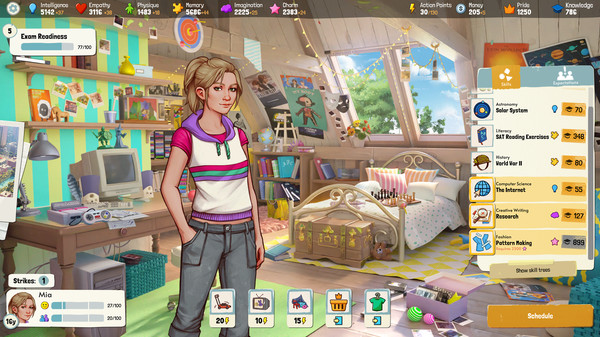 Thanks for the tips, I'll be sure to use them.
Thanks for the tips, I'll be sure to use them.
1
reply
Guest, November 13, 2019, 02:11 AM
If you reason so maturely at 18, you will succeed! Awareness of one's problems is a great success, not everyone can analyze their problems. Understanding and analyzing one's mistakes, steps, actions is already a sign of "adulthood". 17 December 2019 Under the excessive guardianship of his parents, he lived up to more than twenty years, until life began to confront problems that no one can solve but yourself. It was not without stress and suffering. Yes, and soul-searching delivered its own hardships, but it played an important role later, for which I am grateful. You learn more, you accept more, you put up with a lot. The problem of growing up becomes clear. But I want to point out one psychological state. An already formed adult personality begins to behave more restrained and less emotionally, which is why life is perceived more difficult, as if from the opposite. If you learn to include the same impressionable child in yourself, life becomes appropriate. And this does not interfere with making decisions for an adult, while having an internal curiosity about what you are doing. Moreover, everything turns out much easier, there is involvement in the work. Perhaps it is worth having a flexible psychological state, and where you need to be more serious, and more time to be a child. In the morning, go to work like everyone else, and in your heart - like a child - seek adventure.
If you learn to include the same impressionable child in yourself, life becomes appropriate. And this does not interfere with making decisions for an adult, while having an internal curiosity about what you are doing. Moreover, everything turns out much easier, there is involvement in the work. Perhaps it is worth having a flexible psychological state, and where you need to be more serious, and more time to be a child. In the morning, go to work like everyone else, and in your heart - like a child - seek adventure.
1
reply
Guest, July 30, 2021, 07:45
If you want adventure on your ass, then of course you will definitely find it, only then do not complain that these adventures found them!
Guest, June 04, 2020, 15:49
I am already at the age "when most of my life has already been lived", but the child has never left me - this is my state of homeostasis in normal living conditions, I play the role of an adult only in life-changing situations: get an education, provide for a family (including parents). ....
....
Guest, Jan 15, 2021 4:12 pm
If it were all simple.... I'm 23 years old, I'm a student, I live with my parents + their parents, a teenage brother and a father who either is or isn't, who is almost retired, working on covens, rooms per square. only 3, mom, me and my brother are on distance education, I don’t have free time: either lessons, or duties I do from my parents or their parents, no one considers me, and there is no money to sq. buy or rent, I don’t work - 1st year, suggested “I want to live at the university”, only it’s unprofitable for them to pay, hang yourself, I don’t have friends, they consider me a liberal among my classmates, only now I’m older than them, and I’m ashamed to communicate with them and just shy, I'm a mouse, in March they transfer us to daytime, I don't know what to do, how to be ... 2020
Guest, December 11, 2021 11:54 AM
Growing up begins with emotional separation from mom... I'm told to grow up, is that okay?
Related content:
Jan 01, 2011 2010
Man-child
Man-child - a man, an adult according to his passport, and at the same time a child in terms of personal development - a person with a childish position in thinking, behavior and emotional reactions, allowing himself the luxury of childish reactions.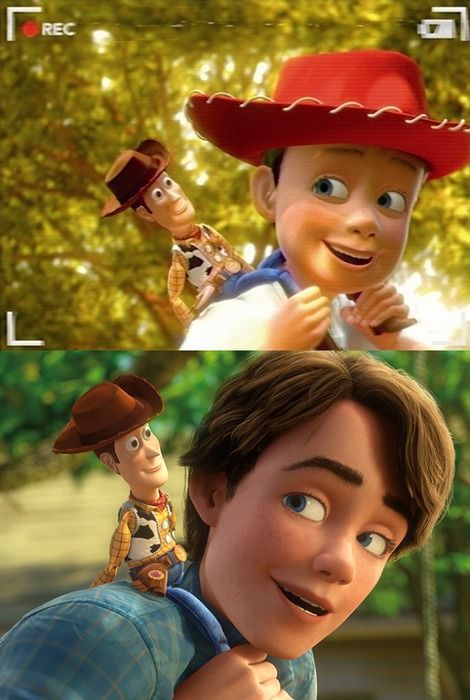 This is low responsibility and parasitism, lack of independence, inability and unwillingness to control one’s feelings and desires, when “I want - I don’t want” and “I love this - I don’t like this” always takes precedence over “must”.
This is low responsibility and parasitism, lack of independence, inability and unwillingness to control one’s feelings and desires, when “I want - I don’t want” and “I love this - I don’t like this” always takes precedence over “must”.
40Read more
01 Sep. 2011
Is Katya ready for adult life? up to thirty years. Especially in St. Petersburg. Remember, take into account and do not burden Katya, do not be excessively rigid. Katya is not ready yet. She is offended ... "And so on. My daughter heard the words of a psychologist very well, and once, when it came to entering the institute, attending additional courses, I started to put pressure again ..., to demand action, instead of dreams and chatter - my daughter reminded me of what the kind woman, gestalt therapist: "Don't put pressure on me, I'm not ready for such loads yet, I'm still a child!".
5Read more
Oct 01 2022
Adult loneliness and what does love have to do with it? Why is it that the older you are, the more you have to break through - quite, by the way, recklessly and “not in an adult way” so that this very love is possible? And why is it so bad for people who are wise, prudent and beaten by life, this thing that younger people have in their lives (we are already silent about teenagers)? What's wrong here?
12Read more
Oct 01 2022
Adults who could not grow up
Minimum worries and responsibilities, maximum entertainment, games and pleasure, here it is - the country of childhood, in which most of the world's youth have successfully settled today.
18Read more
Jan 01 2014
Adult
Adulthood is not a passport, but a person's psychological age, a certain level and type of personality development.
1Read more
Oct 01 2022
Youth. Childhood to adulthood (GDP)
Adolescence is the period of transition from childhood to adulthood. Its age limits are not strictly defined, but approximately it lasts from 12 to 17-19 years, when physical growth practically ends. During this period, a young man or girl reaches puberty and begins to recognize himself as a person separate from the family.
0More
Why do children grow up too quickly?
Child psychology Child 3-7 years More about children Psychology Pregnancy and children Psychotherapy
A happy childhood is associated in an adult with carelessness, swings and slides, holidays and toys, broken knees, ice cream, a river and a sled.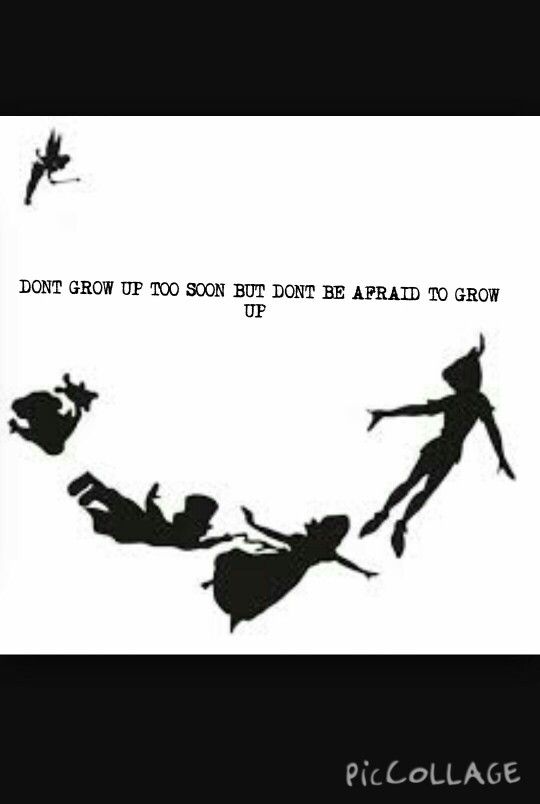 Good parents want their child to grow up as a healthy and cheerful baby, experience positive emotions, feel the warmth, care and love of loved ones. But some children mature earlier than their peers. The reason for this may be external circumstances, the behavior of relatives or the character of the boy or girl himself. Often this negatively affects their perception of life, so it is worth protecting and, if possible, prolonging childhood.
Good parents want their child to grow up as a healthy and cheerful baby, experience positive emotions, feel the warmth, care and love of loved ones. But some children mature earlier than their peers. The reason for this may be external circumstances, the behavior of relatives or the character of the boy or girl himself. Often this negatively affects their perception of life, so it is worth protecting and, if possible, prolonging childhood.
In what situations do children grow up early?
There are many examples in history when entire generations grew up ahead of their time. Severe disasters, war or famine become a national problem when children are deprived of carelessness and security. During the Second World War, boys and girls were malnourished, died from bombing, worked in the rear, became partisan heroes. War children are special people. Life forced them to defend their homeland on an equal footing with their parents, endure hardships and dream of victory.
Misfortunes of a smaller scale destroy destinies no less than national ones. Fire, loss of housing and the death of loved ones affect the child. Deprived of shelter and support of relatives, children are forced to grow up, adapt to new conditions in order to survive. Natural disasters (floods, earthquakes) and man-made accidents produce the same effect.
Fire, loss of housing and the death of loved ones affect the child. Deprived of shelter and support of relatives, children are forced to grow up, adapt to new conditions in order to survive. Natural disasters (floods, earthquakes) and man-made accidents produce the same effect.
Children growing up in poverty in poor countries start early to work, beg or even take up arms. Many of them do not experience strong emotions about this, because they do not know another life. Boys and girls brought up in orphanages, in fact, are also deprived of childhood. They live according to the regime among strangers, no one pampers the guys and does not really love them.
Shame, resentment, disappointment - these emotions are experienced by children growing up in dysfunctional families. When parents abuse alcohol or drugs, suffer from bad habits and mental disorders, their sons and daughters are forced to grow up quickly. This may be necessary to survive or not end up in an orphanage.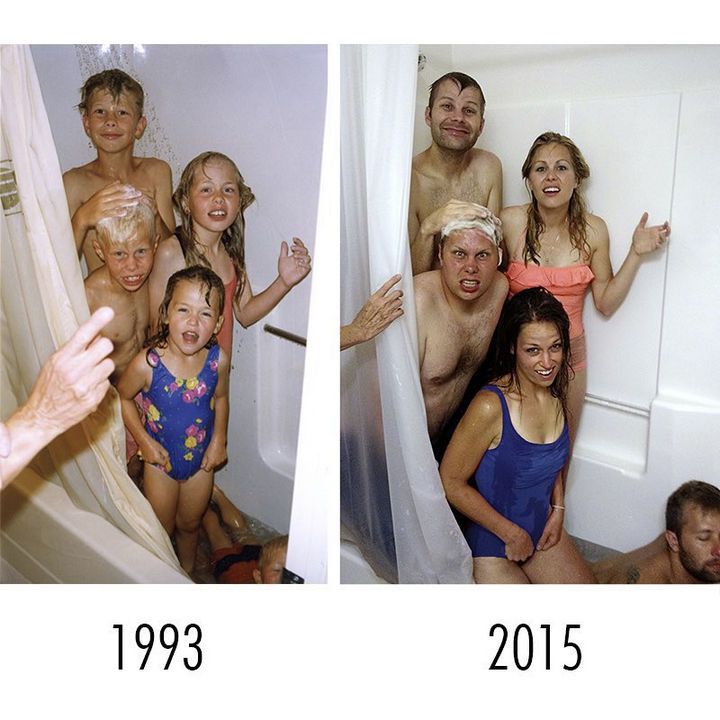 A child brings a drunken adult to life, cleans the apartment and cooks food, looks after a younger brother or sister, earns money or food.
A child brings a drunken adult to life, cleans the apartment and cooks food, looks after a younger brother or sister, earns money or food.
Outwardly prosperous families also do not always go smoothly. Lack of attention from parents, the need to play the role of a nanny for younger children, make a child a small adult. When boys and girls are not watched enough, they end up in a company where they behave in a way that is not childish, in a hurry to grow up.
Some guys are naturally very smart and talented. No matter how pampered and protected by their parents, intellectually they will mature earlier than their peers. Sensitive and attentive children show emotional maturity, from an early age understanding the actions and feelings of people, often worrying about them.
Emotions experienced by a smart child beyond his years
Adults sometimes think that children like to be adults. But often boys and girls are not ready for the responsibility and burden placed on them.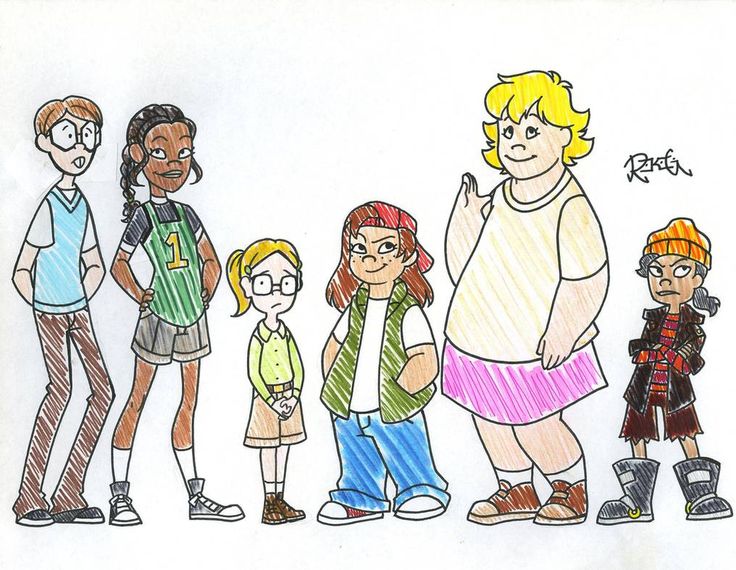 An outwardly self-confident child may suffer from fear and despair in the depths of his soul. Someone overcomes these feelings and surprises others with their actions. Someone takes the path of least resistance, associates with bad company.
An outwardly self-confident child may suffer from fear and despair in the depths of his soul. Someone overcomes these feelings and surprises others with their actions. Someone takes the path of least resistance, associates with bad company.
A child can take care of weak relatives, solve everyday issues, not cry or be capricious, but at the same time be unhappy. It is difficult to predict how this will affect later life. But a person who has not walked up, not played enough in childhood, will seek compensation and try to drown out longing.
Smart, erudite children growing up in a normal environment sometimes get bored. They are not interested in communicating with peers, and older guys do not accept them into their company. In such situations, virtual communication helps out: boys and girls find friends of interest in social networks, but become withdrawn in everyday life.
What habits deprive a child of childhood?
Habits associated with the manner of communication and the behavior of family members force the child to behave like an adult. For example, the desire of parents to take the baby with them everywhere, to have difficult conversations with him, to deprive him of walks in the yard and children's company. At first, the son or daughter likes to follow mom and dad around, but at an older age, communication with peers is lacking. Children get tired of conversations and complaints of adults about politics, lack of money, problems at work, in the family, and with health.
For example, the desire of parents to take the baby with them everywhere, to have difficult conversations with him, to deprive him of walks in the yard and children's company. At first, the son or daughter likes to follow mom and dad around, but at an older age, communication with peers is lacking. Children get tired of conversations and complaints of adults about politics, lack of money, problems at work, in the family, and with health.
Adults often try to teach children to do household chores. But some parents get too carried away, not letting the child go out after school or on weekends until he has washed the floors and cooked dinner. The other extreme is to make the eldest son or daughter a teacher for younger brothers and sisters.
Excessive guardianship and anxiety of parents is an obstacle to many children's joys: trips to a summer camp, trips with a class to the forest, trips to competitions in another city. Some moms and dads, for the sake of their peace of mind, do not even allow children to ride the rides.
Bad habits, bad company, early sexual intercourse often become the beginning of adulthood for children. They get into dangerous situations, have offspring too early, do not finish school.
At what age are children ready for adulthood?
It is generally accepted that adulthood is the age when a person becomes an adult. In fact, girls and boys during this period are still dependent, financially and emotionally dependent on their parents. Former schoolchildren will have to get a higher or secondary vocational education, guys - to serve in the army before gaining independence from their parents.
In our country, it is customary to support young families. Society does not condemn when grandparents dress their grandchildren, help the child pay off loans for housing and a car. Parents provide financial or moral support to their children throughout their lives. Some people really grow up only at the moment when they lose their mother and father.
